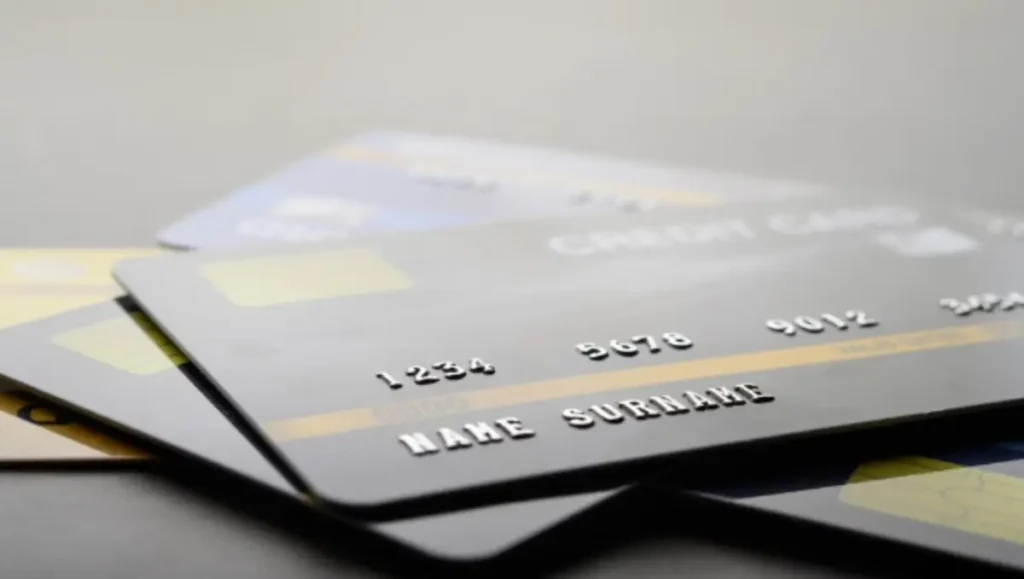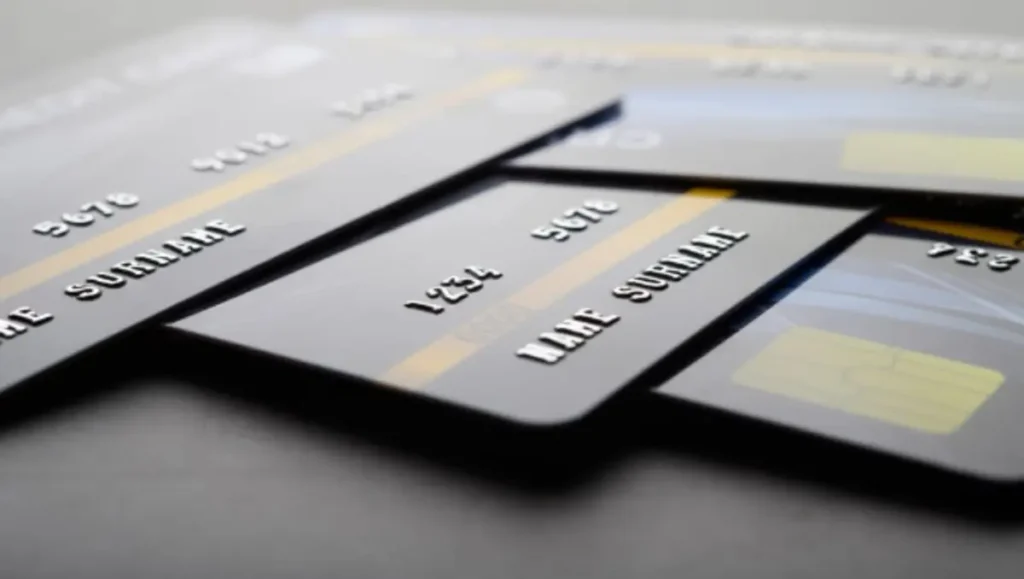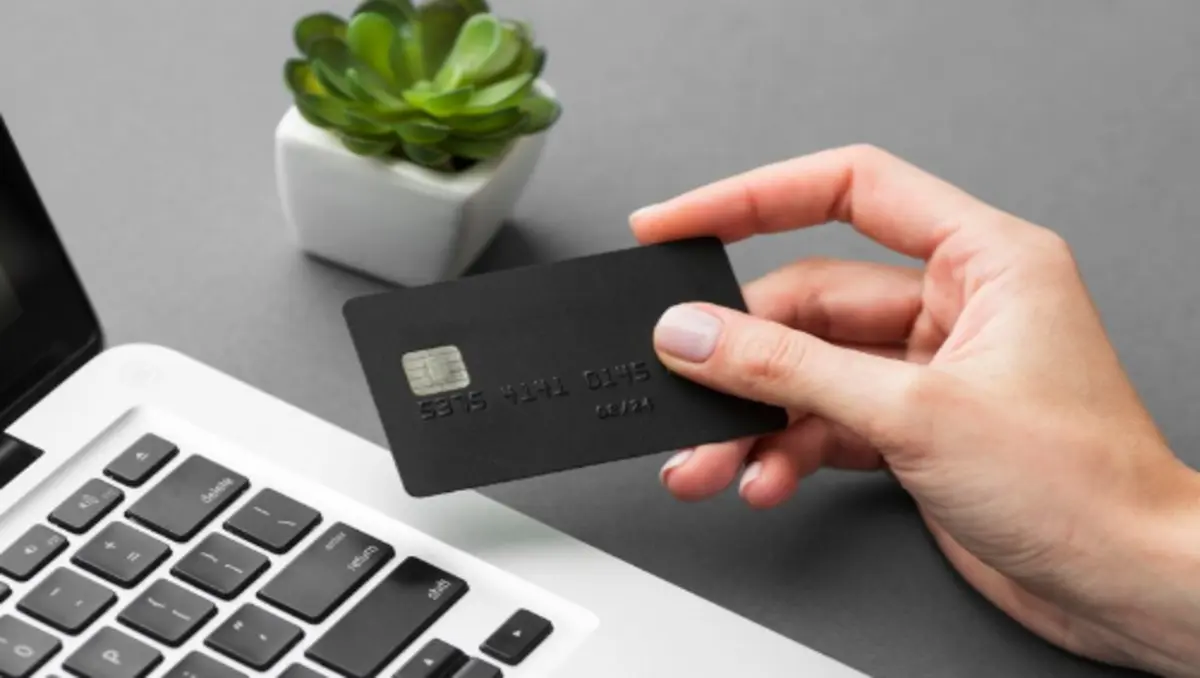In today’s digital age, credit-cards are a crucial financial tool for managing daily costs, building credit, and even earning incentives. Understanding credit-cards is essential whether you’re a student attempting to build credit, a professional handling monthly expenditures, or someone who wants to take advantage of benefits like cashback or travel rewards.
However, many consumers are still unaware of how credit-cards function, their benefits, and how to avoid potential dangers. In this blog post, we’ll look at what credit-cards are, how they function, the various sorts of credit-cards, and how to use them responsibly.
What is a credit card?
A credit card is a payment card that allows you to borrow money up to a particular amount to make purchases or withdraw cash. When you use a credit card, you are borrowing money from the credit card provider (such as a bank or financial institution) and agreeing to repay it later. This borrowed money is often repaid with interest, and failure to pay your balance on time can result in late fines and damage to your credit score.
Unlike debit cards, which deduct funds immediately from your checking account, credit-cards allow you to “charge” your purchases and pay them off over time, usually with a grace period.
How Do Credit-Cards Work?
When you use a credit card, you are effectively borrowing money from the card issuer to pay for products or services. Using a credit card involves a few steps:
- Getting approved: You should apply for a credit card. Your application will be evaluated based on your credit score, income, and payment history. Once authorized, you’ll be given a card with a credit limit.
- Making Purchases: Once you receive your card, you can use it anyplace credit-cards are accepted. The amount you spent is added to your account balance.
- Monthly Statements: At the end of each billing cycle (often monthly), your credit card issuer will send you a statement outlining how much you owe. It will also specify the minimum payment amount.
- Repaying Your Balance: You have the option of paying the full amount owed or making the minimum payment. If you do not pay the entire sum, interest will be applied to the remaining amount.
- Interest & Fees: If you keep a balance from one month to the next, the credit card company will charge you interest. There may also be annual and late payment fees, among other expenses.

Types of Credit-Cards
There are several varieties of cards, each designed to satisfy a certain requirement.
Here are some of the most popular types:
- Standard Credit-Cards: These are the most basic credit-cards, without any additional features such as incentives or bonuses. They’re great for folks who just want to establish or maintain credit.
- Rewards credit-cards provide rewards such as cashback, points, or miles for each dollar spent. They’re an excellent choice for people looking to earn incentives on their purchases. These awards can be redeemed for travel, merchandise, or statement credits.
- Cashback Credit-Cards: These cards return a percentage of your spending in cash. Typically, you may get cashback on ordinary purchases like groceries, gas, and dining out.
- Travel credit-cards offer travel-related benefits such as frequent flyer miles or hotel points. These cards frequently include travel-related advantages, such as airport lounge access, travel insurance, and more.
- Balance Transfer Credit-Cards: If you already have credit card debt, these cards allow you to transfer that balance to a card with a lower interest rate, frequently with a promotional 0% APR for a certain period.
- Secured credit-cards require a deposit to open, which serves as collateral. Individuals with low or poor credit history frequently use these cards to improve or rebuild their credit score.
Advantages of Using A Credit Card
Credit-cards offer a variety of perks that, when used wisely, can make them an effective financial instrument. Some of the main benefits include:
- Building Credit: Using a credit card on a regular basis and paying your balance on time will help you establish a favorable credit history, which is required for loans, apartment rentals, and other purposes.
- Convenience: Credit-cards are accepted practically everywhere, giving them an easy way to pay for items both in-store and online.
- Rewards: Many credit-cards provide rewards programs such as cashback, travel points, and purchase discounts. These rewards can help you save money or gain perks from your ordinary purchases.
- Security: Credit-cards offer fraud protection. If your card is lost or stolen, you are usually not liable for unauthorized charges. Furthermore, using a credit card rather than carrying cash might lessen the chance of loss or theft.
- Emergency Backup: A credit card can be used as a backup source of funds in the event of an emergency, such as unexpected medical bills or car repairs.

How to Use Credit-Cards Responsibly
While credit-cards provide numerous benefits, they can pose problems if not utilized appropriately. Here are some guidelines to help you use your credit card responsibly:
- Pay your balance in full. Whenever feasible, pay off your credit card debt in full each month to avoid paying interest.
- Make Payments on Time: Always pay on time to prevent late fees and credit score loss.
- Avoid Spending Beyond Your Means: It’s tempting to overspend with a credit card, but keep in mind that the money you borrow will have to be paid back later. Charge only what you can afford to pay back.
- Monitor Your Spending: Check your credit card statements and account activity on a regular basis to verify that you are not spending more than you mean to. Many card issuers offer smartphone apps to help customers track their spending.
- Keep Your Credit Utilization Low: Credit utilization is the percentage of available credit that you are using. To maintain a decent credit score, limit your credit utilization to less than 30%.
- Understand Your Credit Card Terms: Read your credit card’s terms and conditions, including interest rates, fees, and rewards programs. Knowing how your card works will allow you to avoid surprises.
Common Credit Card Mistakes To Avoid
Credit-cards can be useful, but they can also cause financial problems if used inappropriately. Here are some common mistakes you should avoid:
- Paying only the minimum payment: Paying merely the minimum payment will incur interest charges, making it more difficult to pay off your balance. Try to pay more than the minimum.
- Missing payments can result in late penalties, higher interest rates, and a negative influence on your credit score.
- Spending up to your credit limit can have a negative impact on your credit score. To maintain good financial health, keep your balance well below your credit limit.
- Applying for too many credit-cards in a short period of time will damage your credit score. Only apply for fresh credit as needed.
- Ignoring Fees: Certain credit-cards have hidden fees, such as annual fees, foreign transaction fees, or cash advance fees. Before you choose a card, read the tiny print.
How to Select the Right Credit Card for You
Choosing the best credit card is determined by your financial goals, spending patterns, and credit history. Here are some things to consider:
- Your Credit Score: If you have strong or excellent credit, you are more likely to qualify for cards with more rewards and lower interest rates. If you have weak or restricted credit, you may need to begin with a secured or standard card.
- Rewards & Benefits: Choose whether you want cash back, travel rewards, or points for your everyday purchases. Some cards also provide additional benefits, such as travel insurance or extended warranty.
- Fees: Compare the fees charged by various cards, such as annual fees, foreign transaction fees, and balance transfer fees. Look for a card that provides good value for your needs.
- Interest Rates: If you want to carry a balance, seek for a credit card that has a low interest rate. Avoid cards with high APRs, which can result in large interest costs.

Conclusion
When used appropriately, credit-cards may be a very effective financial instrument. They can help you manage your money, improve your credit, and earn incentives. However, they also carry risks, like as debt buildup and credit score damage if not effectively managed.
read more
https://financekhush.com/how-is-invest-in-global-mutual-funds-in-2025
Understanding how credit-cards work, selecting the correct card for your requirements, and using them responsibly allows you to fully benefit from their perks without getting into financial problems. Pay your bills on time, minimize excessive debt, and keep track of your spending to get the most out of your credit card.
Faq’s
1. What is a credit card?
A credit card is a payment method that allows you to borrow money from a bank or financial institution and make purchases up to a set limit. If you do not repay the borrowed amount in full by the due date, you will be compelled to pay interest on it.
2. How does a credit card work?
When you use a credit card to make a purchase, the amount is borrowed from the card issuer and must be paid back within a certain time frame. You can pay the entire sum or make a minimum payment, with interest imposed on any outstanding balance.
3. What is a credit limit?
A credit limit is the maximum amount you can borrow using your credit card. This limit is set by the card issuer depending on your credit history, income, and trustworthiness.
4. What are credit card interest rates (APR)?
The annual percentage rate (APR) is the interest rate imposed on your credit card’s outstanding balance. If you do not pay your whole balance by the due date, the leftover balance will be charged interest at the set APR.
5. What are credit card rewards?
Credit card incentives are perks you receive based on your spending. Depending on the sort of card you have, you may receive cashback, travel points, or other benefits. Rewards are normally received for every dollar spent, with some categories (such as groceries or restaurants) yielding larger rates of return.
6. What is a secured credit card?
A secured credits card requires a deposit to serve as collateral. It is often used by those with minimal or poor credit history to establish or reestablish credit. The deposit typically serves as your credit limit.
7. What happens if I miss a payment?
Missing a payment can lead to late fines, increased interest rates, and a lower credit score. To avoid these penalties, make at least the required minimum payment on time.
8. What is a credit score, and how does it apply to credit-cards?
A credit score is a numerical evaluation of your creditworthiness. It varies between 300 and 850, with higher ratings suggesting better credit health. Your credit score can influence your ability to be approved for a credit card, the credit limit you are given, and the interest rates you pay.
9. Can I use my credit card internationally?
Most credits card are accepted abroad. Keep in note that some card issuers may charge foreign transaction fees. It is best to tell your card issuer before flying to avoid card usage concerns.
10. How might using a credit card help me enhance my credit score?
You can enhance your credit score by using your card properly, such as paying your payments on time, keeping your credit usage ratio low (ideally below 30%), and avoiding applying for too many new cards at once. Furthermore, paying off your bill in full each month prevents interest costs and debt accumulation.

2 thoughts on “Best Credit Cards for 2025: A Comprehensive Guide ”